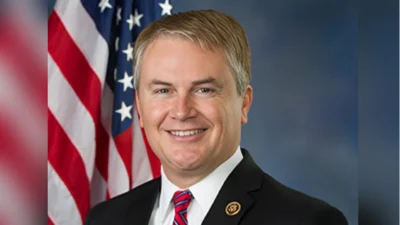Thank you. I am honored to receive this award. For almost ten years now, I have served as either Chairman or Ranking Member of the Senate Finance Committee. During this time, I have learned a lot about the valuable role that small businesses play in our economy - and have become concerned about their growth.
Everyone acknowledges that small businesses are the engines of our economy. When they move forward, they pull the rest of the country with them. Despite this acknowledgement, it seems that small businesses are increasingly disadvantaged by laws and regulations.
Health care reform is a perfect example. As you all know, on March 23rd, the President signed the health reform bill into law. I voted against the underlying Senate reform bill and the reconciliation bill. I see them leading to higher health care costs, higher insurance premiums, higher taxes, and decreased access to health care providers. That’s not just my assessment. That’s the opinion of non-partisan experts at CBO and the White House’s own chief actuary.
I was concerned about this outcome from the start. That’s why more than a year ago, and for nine months, I started working to see if it was possible to develop a bipartisan piece of legislation that would bring about responsible reform. Unfortunately, the White House and majority leadership decided to move ahead in a partisan way with a controversial bill that did not attract broad-based support.
And as you may already know, this new law could hit small businesses pretty hard. The new tax on health insurance will just end up being a tax on small businesses. CBO and The Joint Committee on Taxation have confirmed time and time again that health insurers won’t end up paying these new taxes - health care customers will. In addition, certain employers will be subject to a tax if they don’t provide affordable insurance. Yet, the law does not do enough to address underlying health care costs. If we can’t control those costs, we can’t expect to see any relief from out-of-control premiums.
It is troublesome that small businesses have to now figure out what affordable insurance means and then likely be subject to a penalty as premiums continue to go up and up. Medical malpractice reform, interstate competition and small business health plans have been shown to address underlying costs, but these proven policies were not included in the new law.
The new health care law does offer a tax credit for certain small businesses that provide health insurance for their employees. But, this tax credit is temporary and very limited. In the end, it does not appear that the tax credit will help struggling small businesses with the cost of health care. Again, that’s not my assessment. CBO tells us so.
Aside from health care reform, I worry about the regulatory burdens small businesses face, especially with the IRS. I was shocked to learn that the IRS overwhelmingly assessed the 6707A tax shelter disclosure penalty on small businesses. When I authored that provision, I intended to shine a light on the activities of large corporations that purposefully engaged in tax shelters.
My inquiry into the IRS’s assessment of these penalties also taught me about the IRS’s use of liens. I am worried about the IRS’s disregard for the impact on a taxpayer’s credit rating from an unnecessary lien filing.
It does not appear that small business has much of a voice with the IRS. I am considering whether a small business taxpayer bill of rights is needed as a result. But, I understand that legislative uncertainty can wreak just as much havoc as the IRS.
The Finance Committee is hoping to mark up a small business tax relief bill. The 6707A fix has passed the Senate but has not been in a bill that’s made it to the President. I hope to include it in the Finance Committee’s small business bill. And I am working to ensure that the provisions in my small business bill that I introduced last summer are included.
In the area of the estate tax, I continue to work with Chairman Baucus and Senators Lincoln and Kyl on a path forward. We are working to achieve a permanent tax rate of 35 percent and an exemption amount of $5 million. There is also support for re-unifying the estate and gift tax unified credits, and providing portability of the exemption between spouses. Unfortunately, the estate tax legislation is caught up in the conversation on “pay-fors" or “offsets". The small business tax relief bill, the annual tax extenders bill and the extension of the 2001/2003 tax relief are caught up in the same discussion. I, and many of my colleagues, are frustrated that tax relief must be offset with tax increases but spending increases don’t have to be offset with spending decreases. So it is still unclear on when we will reach consensus in the hyper-partisan political environment.
But I want to let you know that I understand that you want certainty in the law. You want certainty that will help promote small business. I know that you want certainty as it relates to the marginal tax rates, and the overall regulatory environment for small business. Please know that I will remain one of small businesses’ strongest advocates. We have to keep up the fight. Lower taxes, lower health care premiums, and more certainty in the law are the least Congress can provide to small businesses, the engines of our economy. Thank you again for this award.








